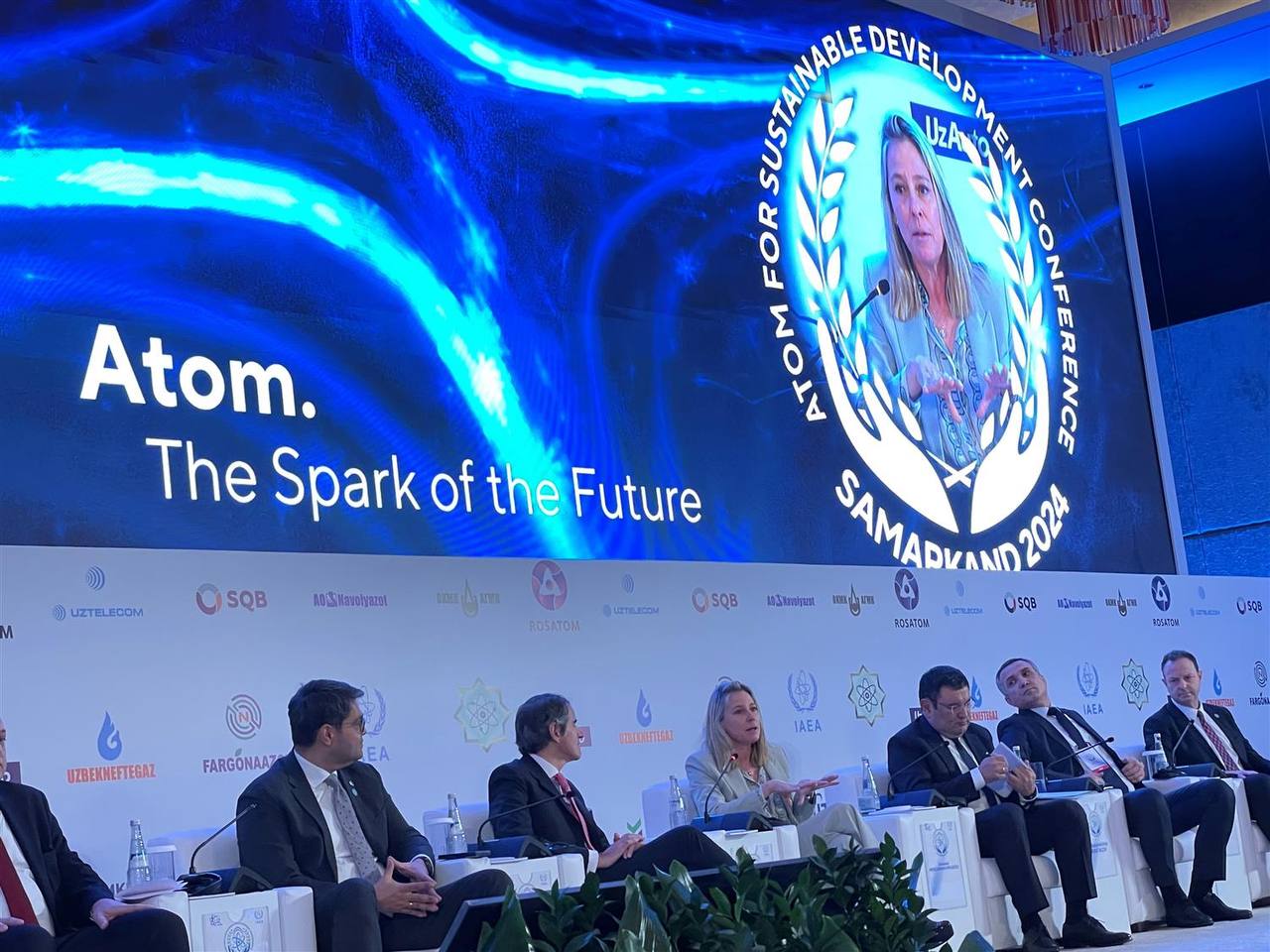The World Nuclear Association (WNA) and Uzatom, the Atomic Energy Agency under the Cabinet of Ministers of Uzbekistan, have signed a Memorandum of Understanding (MoU) to enhance bilateral cooperation in the nuclear energy sector.

The agreement, which focuses on the promotion of nuclear power, education, and training, was formalized at the inaugural Use of Nuclear Energy for Peaceful Purposes in Sustainable Development of the Organization of Islamic Cooperation (OIC) Member States conference in Samarkand, Uzbekistan, on 5 December 2024.
Dr. Sama Bilbao y León, Director General of the World Nuclear Association, and Akhmedkhadjaev Azim Israilovich, Director of Uzatom, signed the MoU during the conference, which brought together leading experts and officials to discuss nuclear energy’s role in sustainable development. The agreement aims to foster cooperation between the two organizations in the areas of information exchange, collaborative research, and nuclear energy education.
This new partnership builds upon an earlier agreement between the President of Uzbekistan, Shavkat Mirziyoyev, and Rafael Grossi, Director General of the International Atomic Energy Agency (IAEA), signed on 4 December 2024. The joint roadmap developed through this agreement outlines plans for expanding multidimensional cooperation in the peaceful development of nuclear energy in Uzbekistan.
https://x.com/daryoeng/status/1864530081705517184?s=61&t=DRxJZGnKRJkz5d9dHjHNlQ
Uzbekistan, which is actively pursuing nuclear energy as a means of diversifying its energy mix and achieving sustainable development, has taken steps to strengthen its nuclear capabilities.
As Uzbekistan works to diversify its energy sources, nuclear power is central to its strategy. Currently, 88% of the country's electricity comes from natural gas, but with gas resources depleting and electricity demand set to double by 2030, nuclear power presents a sustainable alternative.
By 2030, Uzbekistan plans to generate 15% of its electricity from nuclear power, reduce natural gas consumption, and modernize its power grid as part of its broader energy diversification efforts to enhance energy security and reduce fossil fuel reliance.
Follow Daryo's official Instagram and Twitter pages to keep current on world news.
Comments (0)